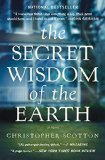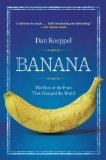Summary | Excerpt | Reviews | Read-Alikes | Genres & Themes | Author Bio

A Human History
by Barbara Freese'Offers an exquisite chronicle of the rise and fall of this bituminous black mineral.... Part history and part environmental argument, Freese's elegant book teaches an important lesson about the interdependence of humans and their natural environment both for good and ill throughout history.'
Prized as "the best stone in Britain" by Roman invaders who carved jewelry out of it, coal has transformed societies, powered navies, fueled economies, and expanded frontiers. It made China a twelfth-century superpower, inspired the writing of the Communist Manifesto, and helped the northern states win the American Civil War. Yet the mundane mineral that built our global economy - and even today powers our electrical plants - has also caused death, disease, and environmental destruction. As early as 1306, King Edward I tried to ban coal (unsuccessfully) because its smoke became so obnoxious. Its recent identification as a primary cause of global warming has made it a cause célèbre of a new kind. In this remarkable book, Barbara Freese takes us on a rich historical journey that begins three hundred million years ago and spans the globe. From the "Great Stinking Fogs" of London to the rat-infested coal mines of Pennsylvania, from the impoverished slums of Manchester to the toxic city streets of Beijing, Coal is a captivating narrative about an ordinary substance that has done extraordinary things-a simple black rock that could well determine our fate as a species.

If you liked Coal, try these:

The Secret Wisdom of the Earth
by Christopher Scotton
Published 2016
Timely and timeless, this is a dramatic and deeply moving novel about an act of violence in a small, Southern town and the repercussions that will forever change a young man's view of human cruelty and compassion.

by Dan Koeppel
Published 2009
A gripping biological detective story that uncovers the myth, mystery, and endangered fate of the world’s most humble fruit - the banana.